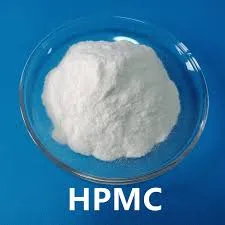
Set . 22, 2024 03:26 Back to list
use of hydroxyethyl cellulose
Hydroxyethyl cellulose (HEC) is a water-soluble polymer derived from cellulose, a natural polymer obtained from plant cell walls. HEC has garnered attention in various industries due to its unique properties and versatile applications. Its primary characteristics, such as its ability to form gels, stabilize emulsions, and serve as a thickener, make it an invaluable ingredient in several products.
In the cosmetic and personal care industry, HEC is widely used as a thickening and stabilizing agent in lotions, creams, and shampoos. Its ability to enhance product texture and delivery is crucial for consumer acceptance. HEC not only improves the viscosity of formulations but also contributes to a smooth and pleasant application experience. Moreover, its hydrophilic nature helps retain moisture, making it beneficial for skin-care products designed to hydrate and nourish.
The construction industry also benefits from the use of hydroxyethyl cellulose. It is often added to cement-based materials, such as adhesive mortars and plasters, to improve workability and increase the adhesive properties of the mixture. HEC extends the open time of these materials, allowing for better application and finishing. Furthermore, the polymer aids in controlling water retention, ensuring proper curing and enhancing the overall mechanical properties of the construction materials.
use of hydroxyethyl cellulose

In pharmaceuticals, HEC is utilized as a binder in tablet formulations and a thickening agent in liquid medications. Its biocompatibility and non-toxicity make it suitable for direct use in drug formulations, particularly for sustained release applications. Additionally, HEC's ability to form gels can help in creating drug delivery systems that improve bioavailability and therapeutic effects.
The food industry also employs hydroxyethyl cellulose as a food additive, where it serves as a thickener and stabilizer
. It can enhance the texture of various food products, from sauces to dairy items, ensuring consistent quality and improved mouthfeel.In conclusion, the use of hydroxyethyl cellulose spans multiple industries, showcasing its versatility and functionality. Its contributions to cosmetics, construction, pharmaceuticals, and food not only highlight its importance but also indicate its potential for future innovations. As consumer demands and technological advancements continue to evolve, HEC will likely play a pivotal role in the development of new and improved products across various sectors.
-
tile-bonding-additives-for-stronger-bonds
NewsAug.22,2025
-
construction-grade-rdp-for-wholesale-needs
NewsAug.22,2025
-
trusted-wholesale-hec-partners
NewsAug.22,2025
-
hec-solutions-for-industrial-excellence
NewsAug.22,2025
-
construction-additives-need-hpmc-essentials
NewsAug.22,2025
-
hpmc-versatile-cellulose-ether-for-industries
NewsAug.22,2025







